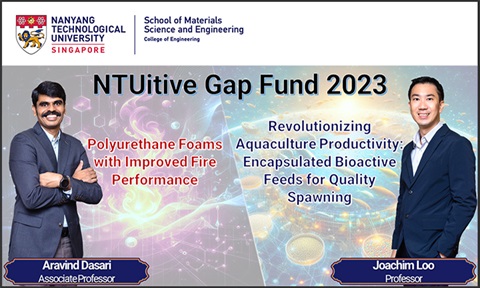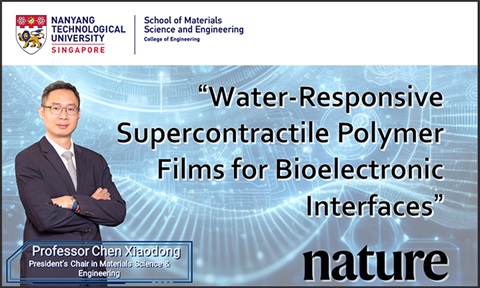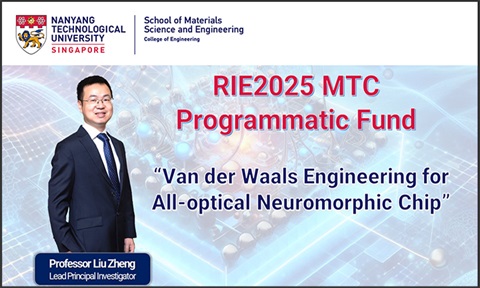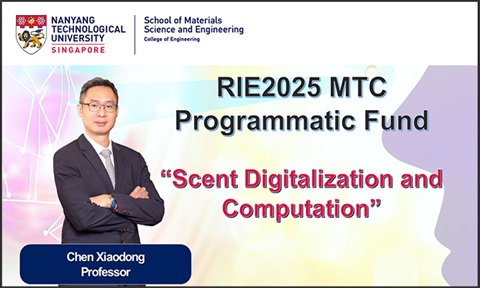Giving e-waste plastics a new lease of life – Assistant Professor Dalton Tay Chor Yong
We are delighted to share the research achievement of Assistant Professor Dalton Tay Chor Yong and team, which has been featured in various media.
Assistant Professor Dalton Tay and team have developed an upcycling method to reduce environmental footprint of plastic waste stream.
Plastics found in electronic waste (e-waste) are rarely recycled due to their complex composition and hazardous additives, but scientists at NTU Singapore have developed a new use for them – by repurposing them as an alternative to the plastics
used in laboratory cell culture containers, such as petri dishes.
The team at NTU Singapore–CEA Alliance for Research in Circular Economy (SCARCE) repurposed the e-waste plastics, subjecting them only to sterilization, before being trialled in lab experiments.
The team found that over 95 per cent of the human stem cells seeded on plastics scavenged from discarded computer components remained healthy after a week, a result comparable to cells grown on conventional cell culture plates.
These findings, described in a study published online in the scientific journal Science of the Total Environment, indicate a potential new sustainable use for e-waste plastics, which account for about 20 per cent of the 50 million tonnes of e-waste
produced worldwide each year.
Repurposing them for cell culture in the lab would not only allow maximum value to be recovered from e-waste plastics, but also help to reduce the amount of plastic waste generated from biomedical research, said the NTU research team. A study in 2015
estimated that 5.5 million tonnes of lab-related plastic waste , including cell culture dishes, is generated globally in a year.
These new findings build on a 2020 study led by the same NTU team, which investigated the effect of e-waste plastics on six different human cell types and found healthy cell growth despite the hazardous elements to be found in e-waste plastics.
Assistant Professor Dalton Tay, who led this interdisciplinary study, said: "E-waste plastics contain hazardous components which may get released into the environment if not disposed of properly. Interestingly, we found through our studies that certain
e-waste plastics could successfully maintain cell growth, making them potential alternatives to the cell culture plastics used in labs today." "Repurposing them for immediate use rather than recycling them enables the immediate extension of the lifespan
of e-waste plastics and minimizes environmental pollution. Our approach is in line with the zero-waste hierarchy framework, which prioritizes the reuse option through materials science and engineering innovation."
|
The breakthrough research was published in the following peer-reviewed scientific journals:
Science of the Total Environment, with the title “Direct reuse of electronic plastic scraps from computer monitor and keyboard to direct stem cell growth and differentiation” (https://www.sciencedirect.com/science/article/abs/pii/S0048969721061635).
Chemosphere, with the title “Clarifying the in-situ cytotoxic potential of electronic waste plastics” (https://www.sciencedirect.com/science/article/abs/pii/S0045653520329179).
Our heartiest congratulations to Prof Tay and team on the excellent achievement!
Media Coverage:














/enri-thumbnails/careeropportunities1f0caf1c-a12d-479c-be7c-3c04e085c617.tmb-mega-menu.jpg?Culture=en&sfvrsn=d7261e3b_1)

/cradle-thumbnails/research-capabilities1516d0ba63aa44f0b4ee77a8c05263b2.tmb-mega-menu.jpg?Culture=en&sfvrsn=1bc94f8_1)

7e6fdc03-9018-4d08-9a98-8a21acbc37ba.tmb-mega-menu.jpg?Culture=en&sfvrsn=7deaf618_1)

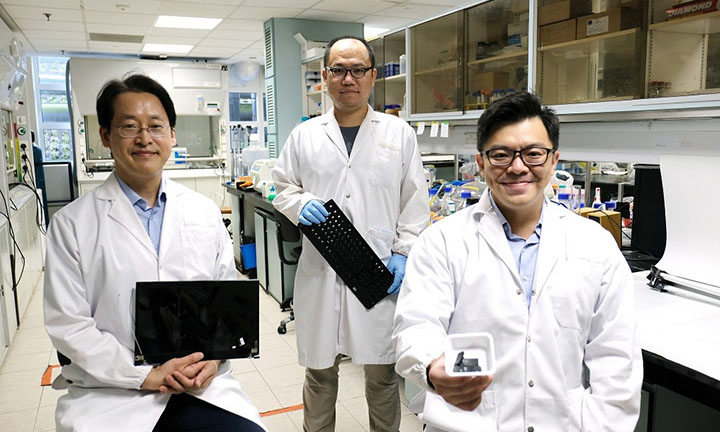 From left: Assoc Prof Lee Jong-min, Dr Shi Pujiang and Asst Prof Dalton Tay, Source: NTU
From left: Assoc Prof Lee Jong-min, Dr Shi Pujiang and Asst Prof Dalton Tay, Source: NTU 
